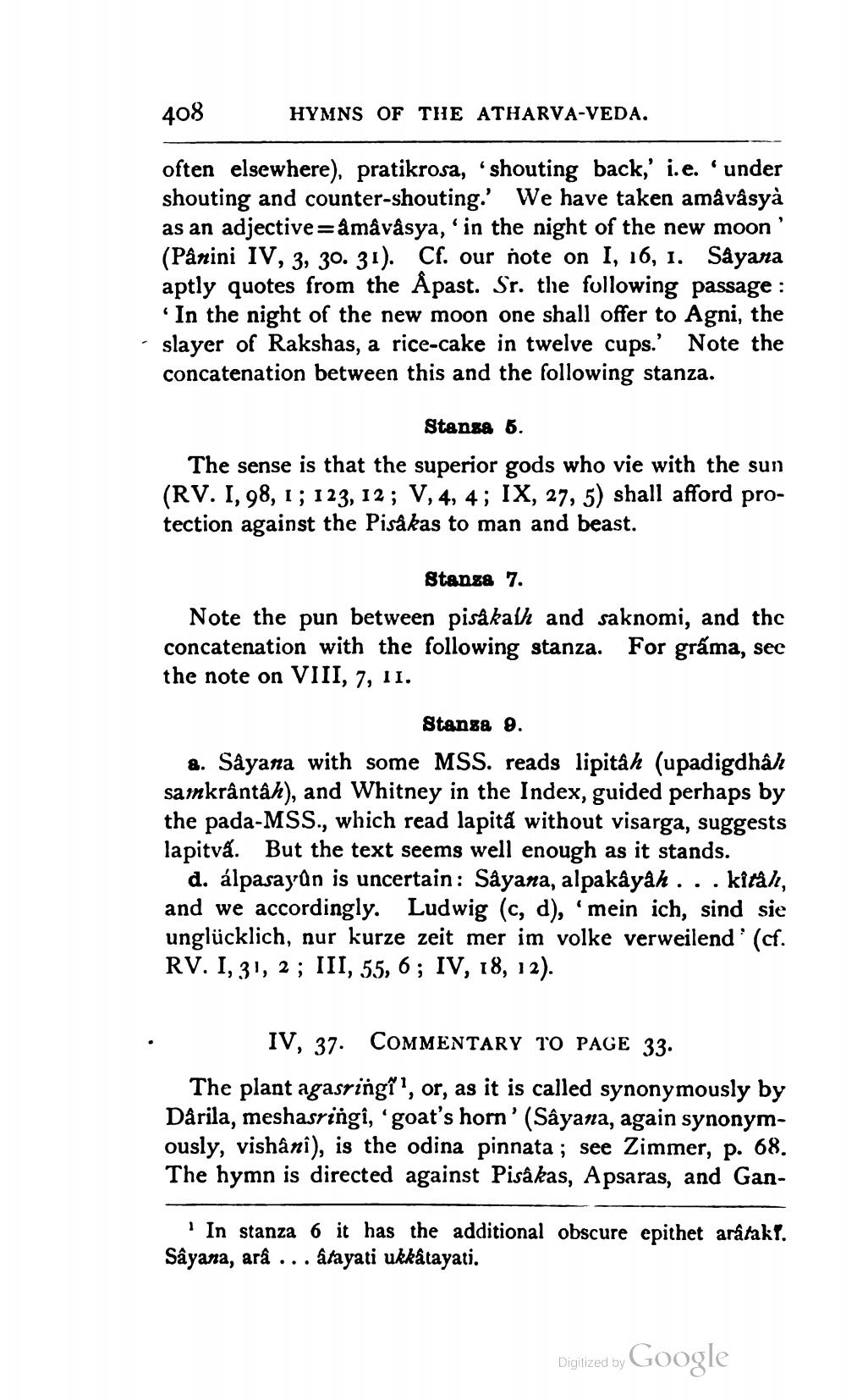________________
408
often elsewhere), pratikrosa, 'shouting back,' i.e. 'under shouting and counter-shouting.' We have taken amâvâsyà as an adjective=âmâvâsya, ' in the night of the new moon (Pânini IV, 3, 30. 31). Cf. our note on I, 16, 1. Sâyana aptly quotes from the Apast. Sr. the following passage: 'In the night of the new moon one shall offer to Agni, the slayer of Rakshas, a rice-cake in twelve cups.' Note the concatenation between this and the following stanza.
HYMNS OF THE ATHARVA-VEDA.
Stanza 5.
The sense is that the superior gods who vie with the sun (RV. I, 98, 1; 123, 12; V, 4, 4; IX, 27, 5) shall afford protection against the Pisâkas to man and beast.
Stanza 7.
Note the pun between pisâkah and saknomi, and the concatenation with the following stanza. For grama, see the note on VIII, 7, 11.
Stanza 9.
a. Sâyana with some MSS. reads lipitâh (upadigdhâ/ samkrântâh), and Whitney in the Index, guided perhaps by the pada-MSS., which read lapita without visarga, suggests lapitva. But the text seems well enough as it stands.
d. álpasayûn is uncertain: Sâyana, alpakâyâh. kitali, and we accordingly. Ludwig (c, d), 'mein ich, sind sie unglücklich, nur kurze zeit mer im volke verweilend' (cf. RV. I, 31, 2; III, 55, 6; IV, 18, 12).
IV, 37. COMMENTARY TO PAGE 33.
The plant agasring?', or, as it is called synonymously by Dârila, meshasringî, 'goat's horn' (Sâyana, again synonymously, vishânî), is the odina pinnata; see Zimmer, p. 68. The hymn is directed against Pisâkas, Apsaras, and Gan
In stanza 6 it has the additional obscure epithet arâtaki. Sâyana, arâ... âfayati ukkâtayati.
Digitized by
Google




